Contribution to the Realization of a Resource-Recycling Society
Resource Conservation Activities
Water Resources Policy
As the world economy develops and the world’s population grows, the risks posed by water shortages and water pollution have become global in nature. Companies, too, are required to respond to these water-related issues. At Canon, we rely on numerous water resources in its production processes. We have therefore formulated a Policy on Water Resources, and we work both to promote the effective use of water and to prevent water pollution. We also recognize that water is closely linked to climate change and other environmental issues, and we understand impact on the environment.
Based on our corporate philosophy of kyosei, at Canon we are working with various parties—including local communities and our suppliers—to reduce our use of water resources, and to minimize our impact on the environment.
- We recognize that the safe and secure use of water resources is a human right, and we shall act accordingly.
- We comply with all applicable laws in each country/region and other requirements agreed upon with stakeholders, and pursue reduction of water consumption and elimination of hazardous substances in all corporate activities.
- Taking international frameworks and regional policies and initiatives into consideration, we actively support and participate in water resource conservation initiatives.
- We establish an Environmental Management System (EMS) and establish and periodically review water-related objectives and targets to prevent water pollution, and steadily reduce water consumption.
- We comply with all applicable regulatory standards, and establish site standard values for wastewater that are more rigorous than these regulatory standards, with the goal of preventing pollution.
- We proactively carry out various activities aimed at restoring ecosystems and protecting biodiversity.
- We are working to reduce water consumption by consistently meeting our target for reduction of water consumption at operational sites.
Water Risks Initiatives
As part of our water risk initiatives, we conducted a water risk assessment of the Canon MJ Group's business locations in Japan using Aqueduct* of the World Resources Institute (WRI), and confirmed that the overall water risk level falls into the "low" or "low-medium" risk level. A specific initiative is the cyclic use of water at the headquarters building. Working together with Shinagawa Grand Commons Machizukuri Kyogikai (community development council), we use recycled water for flush toilets and other equipment, which is encouraged by the Tokyo Metropolitan Government. Monthly water consumption is ascertained and third-party verification is obtained for the Canon Group.
In addition, due to the increased risk of flooding from torrential rains and other factors caused by the recent increase in extreme weather events, we have examined tsunami submersion hazard maps and relocated our domestic business locations at high risk of flooding.
*Aqueduct: Global tool for water risk assessment developed by the World Resources Institute (WRI)
Collecting and Recycling Products
We collect used cartridges, toner containers, MFPs, printers, and other used products from customers and recycle them at facilities including Canon Eco Technology Park, which is a recycling center of the Canon Group.
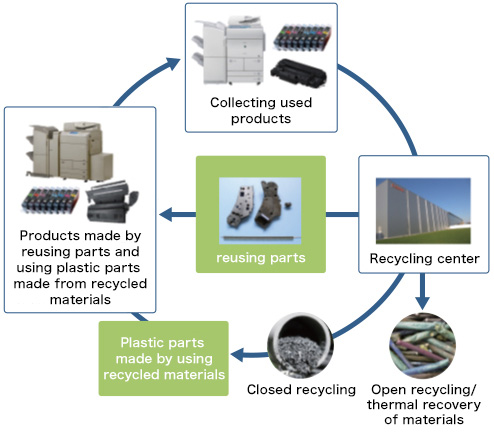
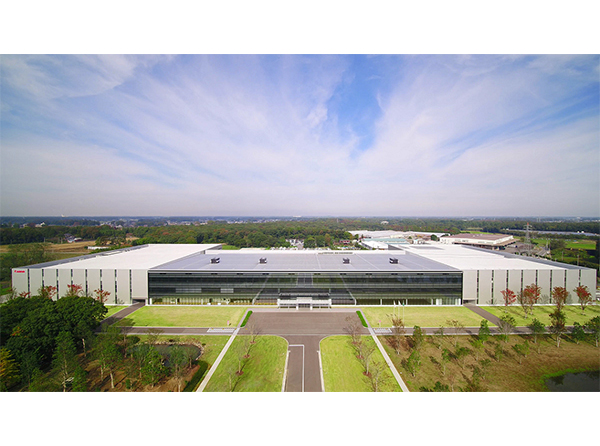
Collecting and Recycling Used Products
Canon products that have been used at offices and other locations are collected at nine collection centers in Japan. We recycle the used products within the Group by working together with the Canon Ecology Industry Inc. which are the recycling centers of the Canon Group.
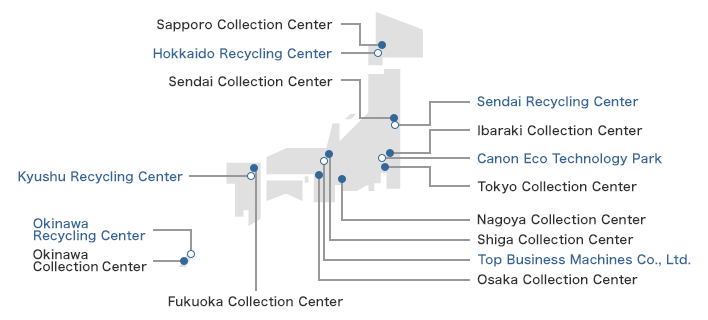
Canon Green Recycling Service -- A Service to Collect Used Products
At Canon MJ, we provide the Canon Green Recycling Service based on the Ministry of the Environment's wide-area certification system, so as to drive collection and recycling of used products. This service eliminates the need for customers to issue, manage, and report manifests when they discharge used Canon products* as industrial waste from offices and other locations, thereby improving customer convenience and contributing to promoting recycling.
*Used Canon products from households are classified as general waste, which must be disposed of by following the rules of each local government.
Achieve zero emissions from product waste (recycling rate of 99.9% or more)
At the Canon MJ Group, we aim to maintain a recycling rate* of 99.9% or higher for end-of-use products collected from customers, such as printers and MFPs. To date, we have maintained our recycling rate at over 99.9% for seven consecutive years. We will continue to do so by identifying the potential risks, taking measures in response, and monitoring progress.
* Recycling rate (rate at which end-of-use products are converted into new resources) = Amount of products disposed of through methods other than landfill disposal ÷ Total amount of products disposed of
Collecting and Recycling Used Cartridges
Canon recycles used cartridges, regarding them as valuable resources. We make effective use of used cartridges collected from customers as resources, instead of landfilling them. This activity of collecting and recycling used cartridges is made possible by customers' cooperation. We have therefore prepared various collection routes in response to the needs of cooperating customers.
In addition to collecting and recycling used cartridges, we implement environmental protection activities based on the quantity of collected cartridges. Specific activities include issuance of Bellmark points based on the quantity of collected cartridges, donation to the Furusato (hometown) Project, and donation to environmental protection activities through the Ink Cartridge Satogaeri (homecoming) Project.
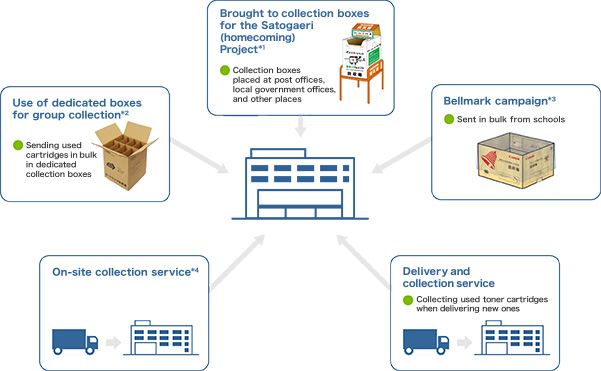
*1: Ink cartridges only
*2: Toner cartridges manufactured by Canon, waste toner boxes for LBPs, and ink cartridges manufactured by Canon
*3: Ink cartridges manufactured by Canon and toner cartridges manufactured by Canon
*4: Toner cartridges manufactured by Canon and waste toner boxes for LBPs
Initiatives to Reduce Product Packaging
The Canon Group works to reduce product packaging, not to mention downsizing its products. The Canon MJ Group also reduces packaging materials used for product delivery, repair, and maintenance, thus contributing to saving resources.
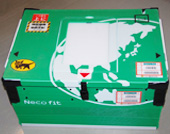
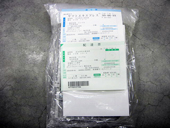
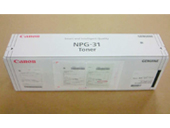
Initiatives to Promote Plastic Waste Reduction and Recycling
Plastic recycling is becoming increasingly important both in Japan and overseas, to address marine pollution, climate change and other issues associated with plastic waste. As part of the Canon MJ Group 2030 Medium-Term Environmental Targets, we are promoting the reduction and recycling of plastic waste and are implementing the following initiatives.
Maintaining and expanding the sale of plastics as valuables at logistics centers
Canon MJʼs logistics centers across Japan use stretch film to prevent loads from collapsing during transit and use styrofoam as packaging materials. Instead of throwing these materials away as plastic waste, some logistics centers make effective use of them, selling them as plastic resources.

Recycling used clear folders
Canon MJʼs head office building takes part in the ASKUL Resource-Recycling Platform operated by ASKUL CORPORATION, and collects and recycles used clear folders. In 2023, we recycled 369 kg worth of clear folders.
Making effective use of returned products, etc.
We are working to reduce plastic waste by making effective use of returned products, etc. In 2023, we made effective use of returned products by reusing used demo equipment internally and donating products that were returned due to defective outer packaging. We also pursued an initiative that involved removing parts from returned inkjet printers and using them in repairs as parts that meet our quality requirements.

Participation in the Plastics Smart Campaign
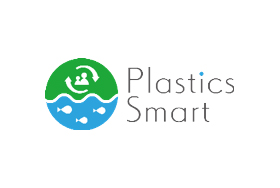
At the Canon MJ Group, we support the idea of Plastics Smart of the Ministry of the Environment and participate in the Plastics Smart campaign.
We engage in recycling activities, reduce the use of plastics, provide environmental education, and take initiatives for raising environmental awareness. Activities of the Canon MJ Group are introduced at the Ministry of the Environment's special website of Plastics Smart.
Activity Examples
- Recycling Class for letting students know the importance of caring about the environment
- Remanufacturing of MFPs
- Collecting and recycling ink cartridges
- Closed-loop recycling under the automatic recycling system for toner cartridges